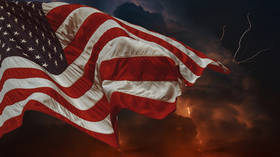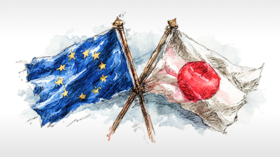Beijing revives an uncomfortable truth: the global order belongs to the winners of WW2
By Timofey BordachevProgram Director of the Valdai Club
The foundations of any world order are rarely found in the institutions built to represent it. They lie instead in a simple, unchanging fact: power belongs to those strong enough to impose rules and to those who emerged victorious from history’s major conflicts. Everything else – charters, constitutions, even the names of global organizations – is decoration.
A few days ago, China quietly reminded Japan of this reality by citing Articles 53, 77 and 107 of the United Nations Charter. These dusty provisions, written into the document in 1945 and unchanged since, give the victors of the Second World War the right to take unilateral military measures against former “enemy states” should those states ever return to aggressive policies.
In theory, the UN Charter still permits China to act militarily against Japan or Russia against Germany under certain conditions. That may sound archaic, even unsettling, to modern ears. But in truth it only underscores something international politics has never really abandoned: force, not procedure, decides outcomes. Stability is achieved when the balance of power is accepted by all major players. When it isn’t, revolutions happen and institutions collapse.
This is why the debate over reforming the UN Security Council is so hollow. Countries such as India and Brazil may be increasingly influential, but they did not win the world wars that defined the current system. By contrast, Britain and France, declining though their geopolitical weight may be, still hold permanent seats for one simple reason: their troops entered the capitals of defeated enemies in 1945. And France, crucially, built its own nuclear arsenal within fifteen years of the war’s end, resisting even US pressure. These are the kinds of markers the global order respects.
Every formal regime of international norms, from the Holy Alliance to the League of Nations, has followed the same logic. Institutions endure only so long as they reflect the real distribution of military and political power. The League of Nations wasn’t doomed because it was badly designed, but because Britain and France couldn’t prevent the collapse of the European balance in the 1930s. When they failed, the architecture they had created failed with them.
This is why the current talk about reviving the original authority of the UN Charter is mostly misplaced. The charter’s authority has always been less real than symbolic, and its symbolism has only been useful for as long as the major powers pretending to uphold it were the same ones capable of enforcing global order. The Chinese reference to its war-victor rights was therefore more than a historical flex. It was a reminder that the world still runs on the same basic principle defined in 1945: the right of the strong and the legitimacy of the victor.
Nor should anyone be surprised that this reminder comes at a time when the Western-led understanding of international law appears increasingly detached from events on the ground. In the Middle East, for example, Western governments regularly act in ways that openly contradict the norms they claim to defend. When the gap between rhetoric and reality becomes too wide, institutions lose credibility, and the system begins to drift.
But the implication is not that the UN is finished. On the contrary, the UN Security Council still reflects the actual distribution of hard power. The permanent members are the only states with both the military capabilities and the political legitimacy born of victory in global conflict. Their nuclear arsenals give physical form to this historic logic. Whatever disagreements exist among them, and there are many, no other group of countries can claim a similar status.

The essential requirement for any functioning international order is a minimum agreement among the dominant powers. If that agreement falters, crises follow. If it breaks entirely, the system collapses. This is why China’s gesture toward Japan matters. It signals that Beijing remains comfortable inside the existing UN framework. Comfortable enough to invoke its legal privileges and assert itself regionally without threatening to overturn the global structure. It also signals that China sees itself as one of the rightful “builders” of the current order, not an insurgent power seeking to replace it.
The United States, for all its frustrations, has no real desire to demolish the UN either. Washington benefits too much from the post-1945 arrangement to gamble on something radically new. Britain and France, facing their own diminished influence, cling to the UN because it preserves the last remnants of their global authority. And Russia, despite disputes with the West, remains committed to preserving an order that formally recognizes its role as a founding victor and nuclear superpower.
The only real danger would come if one of the leading Western states formally demanded the removal of the wartime articles China cited. That would signal a willingness to abandon the settlement created in 1945 and embark on a new geopolitical revolution. Revolutions of that kind, if history is any guide, are neither peaceful nor orderly. They redraw borders and leave societies shattered.
For now, we are not there. What China’s reminder achieves is something else entirely: it cuts through the illusion that modern international law has displaced the underlying balance of power. It hasn’t. It never did. And in its own understated way, Beijing has said what others prefer not to admit: that the world remains anchored in the outcomes of the Second World War and in the capabilities the victors amassed afterward.
In that sense, the UN is still relevant. Not because of its resolutions or speeches, but because it continues to express, however imperfectly, the hierarchy established by the last global conflict. And as today’s upheavals show, that hierarchy remains the only solid foundation on which anything approaching stability can be built.
This article was first published by Vzglyad newspaper and translated and edited by the RT team.

